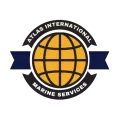E-Commerce and its influence on Shipping Logistics

E-commerce has revolutionized the way we shop and do business online. It has enabled businesses to reach a broader audience and consumers to access a wider range of products and services.
However, with the rise of online shopping, the traditional supply chain and shipping logistics have also undergone a significant transformation.
This article will explore the impact of e-commerce on shipping logistics, how it has improved the delivery process, and the challenges it poses.
In Supply Chain
E-commerce has transformed the supply chain by making it more efficient and streamlined.
The traditional supply chain included multiple intermediaries and steps, such as warehousing, distribution, and transportation.
In contrast, e-commerce enables businesses to ship products directly from the manufacturer or distributor to the end customer, eliminating the middleman.
This streamlined approach provides faster delivery times and reduces the cost of goods sold.
Also enables businesses to automate processes, improve visibility, and optimize inventory management, reducing the time and effort required to manage the supply chain.
In Shipping Logistics
E-commerce has had a profound impact on shipping logistics. Shipping logistics refers to the processes involved in getting a product from a supplier’s warehouse to the customer’s doorstep.
The rise of e-commerce has increased the volume of shipping, making it more complex and challenging to manage.
In response to this challenge, shipping companies have developed new technologies and strategies to improve the delivery process.
Software Tools
One of the most significant advances is the use of software tools that enhance supply chain visibility.
These tools enable companies to track shipments in real time, monitor inventory levels, and optimize delivery routes, reducing the risk of delayed or lost shipments.
They also enable companies to provide customers with more accurate delivery estimates and updates, reducing the risk of customer dissatisfaction.
Automation in Shipping Process
Another significant advance is the increased use of automation in the shipping process.
Automation enables companies to streamline their operations, reduce the need for manual labor, and improve accuracy.
For example, automated warehouse systems can process and package orders more efficiently, reducing the time and cost associated with manual labor.
Robotic systems can also perform repetitive tasks such as picking and sorting shipments, further reducing labor costs and improving accuracy.

The Challenges of E-commerce Shipping Logistics
Volumes
Despite the benefits of e-commerce shipping logistics, it also poses several challenges. One of the most significant challenges is the sheer volume of packages that need to be shipped.
This volume increases significantly during peak shopping periods such as the holiday season, which can put a strain on the shipping infrastructure.
To overcome this challenge, shipping companies must have sufficient capacity and plan their resources strategically to ensure that the delivery process remains efficient, and packages are delivered on time.
Risk of Fraud, Theft, and Damage
Another challenge of e-commerce shipping logistics is the increased risk of fraud, theft, and damage.
With more packages being shipped, there is a higher likelihood of packages being stolen or damaged during the shipping process.
This not only leads to unhappy customers but can also result in significant financial losses for the business.
To mitigate these risks, shipping companies must employ robust security measures such as tamper-evident packaging, real-time tracking, and secure delivery procedures.
Navigating Complexities of International Regulations
Lastly, e-commerce shipping logistics also requires businesses to navigate the complexities of international shipping regulations and customs procedures.
Shipping products across borders can require additional documentation, customs fees, and taxes, which can create an additional burden on both the business and the customer.
Conclusion
E-commerce has transformed the way we do business, and shipping logistics has adapted to keep up with the shift.
The rise of e-commerce has required businesses and shipping companies to embrace new technologies, improve their processes, and strive for greater efficiency and accuracy in the delivery process.
While e-commerce shipping logistics presents some challenges, businesses and shipping companies are working to overcome these obstacles and create a seamless customer experience.
As e-commerce continues to grow, it is clear that shipping logistics will play a critical role in ensuring that products are delivered efficiently, securely, and at a reasonable cost.
Trust us to keep your vessels moving smoothly. Contact us today for all your ship supply and marine services needs.
E-Commerce and its influence on Shipping Logistics Read More »


















